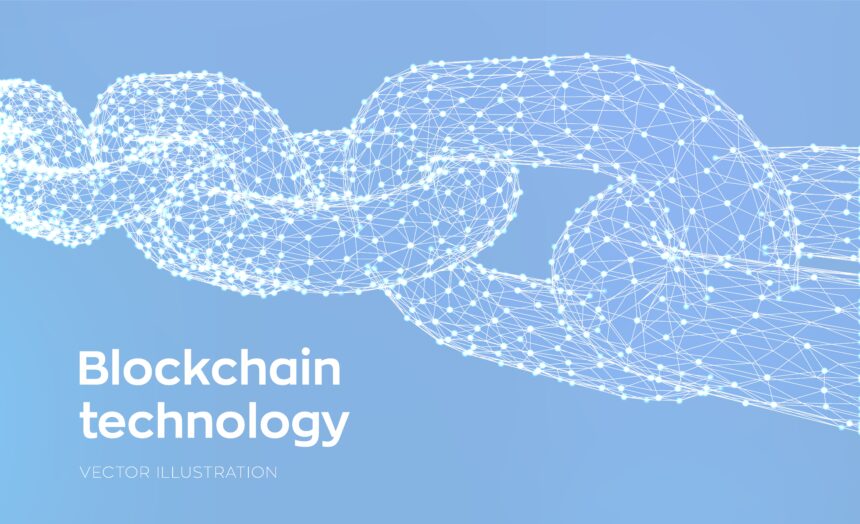In recent years, the world of finance and investment has witnessed the rise of blockchain technology and the emergence of Non-Fungible Tokens (NFTs). These innovative concepts have captured the attention of investors and art enthusiasts alike, with remarkable headlines highlighting multimillion-dollar sales of digital artwork. For South African investors, understanding the fundamentals of NFTs and blockchain technology is crucial as they navigate this exciting new landscape. This article aims to demystify the basics of NFTs and blockchain technology, providing clarity and insights for potential investors in South Africa.
Understanding Blockchain Technology
Blockchain technology serves as the foundation for NFTs. At its core, blockchain is a decentralized, transparent, and secure digital ledger that records transactions across multiple computers or nodes. This decentralized structure ensures the immutability and integrity of data, eliminating the need for intermediaries such as banks or central authorities. Blockchain networks consist of interconnected blocks, each containing a list of transactions. These blocks are securely linked through cryptographic hashes, forming an unbroken chain of information.
Key Characteristics of NFTs
Non-Fungible Tokens, or NFTs, represent unique digital assets that can be bought, sold, and owned. Unlike cryptocurrencies such as Bitcoin or Ethereum, which are fungible and can be exchanged on a one-to-one basis, NFTs possess distinct properties that set them apart. Some key characteristics of NFTs include:
- Uniqueness: Each NFT is distinct and cannot be replicated. This uniqueness is enforced by the blockchain technology that powers NFTs.
- Ownership and Authenticity: NFTs establish clear ownership records, providing proof of authenticity and provenance for digital assets such as artwork, music, videos, virtual real estate, and more.
- Indivisibility: NFTs cannot be divided into smaller units. They are typically sold as whole units, and each unit represents a complete digital asset.
- Smart Contracts: NFTs utilize smart contracts, which are self-executing agreements embedded in blockchain networks. These contracts enable automatic ownership transfers and royalty payments to creators when NFTs are sold or resold.
Benefits and Opportunities for South African Investors
For South African investors, NFTs and blockchain technology present a range of benefits and opportunities:
- Art and Collectibles: NFTs have revolutionized the art market, providing artists with new opportunities to monetize their digital creations. South African artists can leverage NFT platforms to showcase their work globally and reach a broader audience of collectors and investors.
- Ownership and Provenance: Blockchain-based ownership records enable transparent and verifiable ownership of assets, which is particularly valuable in the art world. South African investors can confidently invest in NFT-based artworks, knowing they can prove authenticity and establish provenance.
- Digital Real Estate and Virtual Worlds: NFTs extend beyond art and collectibles. They have found applications in the virtual world, where digital real estate and virtual assets can be bought and sold. South African investors can explore virtual reality platforms and invest in virtual assets within these immersive environments.
- Royalties and Revenue Sharing: NFTs incorporate smart contracts that allow creators to earn ongoing royalties each time their NFTs are resold. This feature ensures that artists continue to benefit from the increasing value of their work, even after the initial sale.
Risks and Considerations
While NFTs offer exciting opportunities, it is essential for South African investors to be aware of potential risks and considerations:
- Volatility: As with any investment, NFTs can be subject to price volatility. The value of NFTs can fluctuate based on market demand and trends.
- Market Saturation and Quality: The increasing popularity of NFTs has led to a flood of new offerings. Investors must conduct thorough research and due diligence to identify high-quality projects and avoid potential scams or low-value investments.
- Regulatory Landscape: Regulations surrounding NFTs and blockchain technology are still evolving in many jurisdictions. South African investors should stay informed about local regulations and ensure compliance with applicable laws.
Conclusion
NFTs and blockchain technology have opened up exciting new avenues for investment and creativity. South African investors can leverage these technologies to explore the world of digital assets, including art, collectibles, virtual real estate, and more. Understanding the basics of blockchain technology and the unique characteristics of NFTs is crucial for making informed investment decisions. By staying informed, conducting thorough research, and exercising caution, South African investors can participate in this emerging market and seize the opportunities presented by NFTs and blockchain technology.










